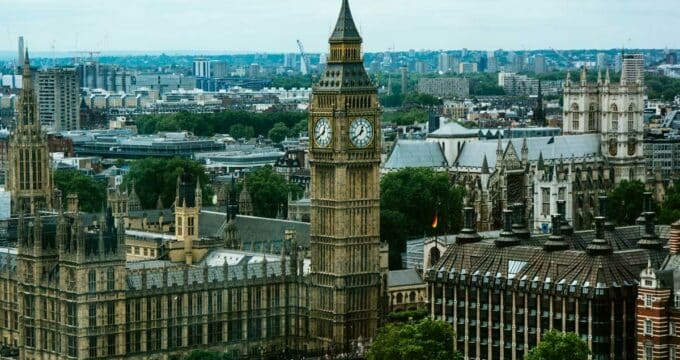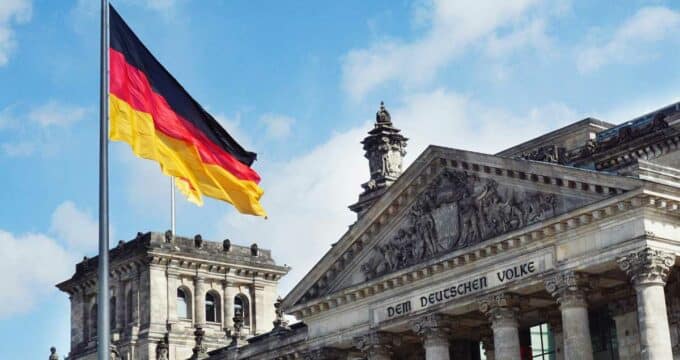Russia announces new investments in higher education and study abroad
The Russian government’s recent announcement of increased funding for 14 universities is yet one more sign of Moscow’s continuing push in boosting the global competitiveness of its higher education institutions. Interestingly, this latest funding commitment is accompanied as well by new supports for Russian student mobility and by recent survey findings indicating that Russian students at all levels continue to show a strong interest in study abroad.
Quality crackdown
A recent article in The Moscow Times explains that Moscow will distribute 10.15 billion rubles (nearly US$300 million) among 14 key universities as part of its “Development of Education” programme. This latest round of funding is in addition to the US$253 million that was divided among 15 universities following an open competition last year. "The universities to be given the biggest slice of the pie this year are all in Moscow," reports The Moscow Times. "The city's Institute of Physics and Technology, the Higher School of Economics and the National Research Nuclear University MEPhI, will each get 950 million rubles (US$26.25 million)...Novosibirsk State University, the St. Petersburg National Research University of Information Technologies, Mechanics and Optics, the Moscow Institute for Steel and Alloys, and the Ural Federal University in Yekaterinburg will be handed 775 million rubles (US$21.4 million). The remaining seven universities will get 600 million rubles (US$16.5 million) each." The funding allocations come on the heels of a quality campaign led by the Federal Service for Supervision of Education and Science, which has been revoking the licenses of Russian schools for a range of violations. Since the start of 2014, over 130 institutions have been prohibited from enrolling new students as part of an attempt by the state to improve the effectiveness of its institutions and to improve education standards in Russia generally.
Ongoing education reforms
In May 2012, the Russian government launched a scheme known as the “5/100 initiative”, a multi-year project to boost the global competitiveness of Russian universities. The plan calls for at least five Russian universities to be ranked among the top 100 institutions in the world by 2020. Additionally, a special Council on Global Competitiveness Enhancement of Russian Universities was established. The Council consists of 12 members, six from Russia and the other six representing the international academic community. These latest developments are part of a long-range series of higher education reforms, including the creation of new federal universities, the designation of certain institutions as national research universities, the awarding of academic mobility grants and a greater focus on deeper internationalisation and research and development. The Council is chaired by Russian Minister of Education and Science Dmitry Livanov and supervised by the Ministry. Minister Livanov adds, “Entering the international rankings can’t be a goal in itself. We understand that the rankings only provide a rough evaluation of university performance.” Writing recently for Higher Education in Russia and Beyond, Oleg Alekseev, a member of the Council, expanded on the minister’s statement by explaining that universities have been tasked with creating concrete roadmaps for development. A special monitoring system is also being devised in order to track progress and evaluate the performance of institutions in reaching key benchmarks. Those institutions that do not meet established performance measures, notes Mr Alekseev, may be expelled from the programme.
Russia announces its own international university rankings
The focus on university rankings comes at a time when Moscow has just announced plans to produce its own international ranking of higher education institutions by June 2015. The Russian government has said the new ranking tables will include universities in the Commonwealth of Independent States (CIS), BRIC, and Shanghai Cooperation Organisation (SCO) countries. The call for the rankings was based on instructions given by Prime Minister Dmitry Medvedev during a State Council meeting earlier this month: “I would like to remind you that the objective to bring Russian schools into the top 100 universities in the world remains relevant,” said the Prime Minister. “Frankly, this is not a simple objective. Nevertheless, we will attempt to fulfill it.” Previous reports on ICEF Monitor highlight earlier reforms of Russian higher education, including sweeping changes to the Russian Academy of Sciences which put the 434-member academy directly under government control, as well as the merger or closure of up to 20% of Russia’s 600 universities. The latest funding announcements build on these earlier commitments to ensuring Russia’s competitiveness and weeding out under-performing institutions.
New support for student mobility
We also reported earlier on Russia’s efforts to encourage growth in both inbound and outbound students. New regulations have been introduced requiring inbound students to complete a foundational year in certain mandated subjects - including an emphasis on acquiring Russian language skills - before writing university entrance exams. These measures come at a time when the Russian Ministry of Education and Science has stated it wants to raise the percentage of international students from 2.5% of total higher education enrolment to 6% in 2015 and 10% in 2018. To further encourage Russian students to study abroad, Prime Minister Medvedev recently announced that qualified Russian graduate students will now be able to study abroad for free. Under the “Global Education” programme, the government will pay the tuition of Russian students who are accepted for graduate study in certain subjects at one of 150 highly ranked schools in 25 countries. In exchange, students must agree to work for a Russian company for a minimum of three years. “The programme allows qualified Russian students to attend foreign universities for the same price they would pay for Russian universities,” says the news agency Russia Beyond the Headlines. “Unlike in most Western countries, higher education in Russia is free for students who receive the required score on the entrance exam.” The Global Education programme was developed by Russia’s Agency for Strategic Initiatives (ASI). “The aim of this programme is for Russia to adopt the best foreign practices in the field of education,” adds Andrei Nikitin, head of the ASI. More than 4 billion rubles (US$115 million) have already been allocated to cover the costs of the first three years of the programme.
Interest in study abroad remains strong
These new investments appear to be timely. According to a recent survey by Career.ru, 80% of Russian students would like to receive their education outside of Russia, with the vast majority of those surveyed ready to study abroad and leave immediately, or as soon as an opportunity arises. Recent British Council figures tell a similar story of growing demand for study abroad opportunities at all levels. There were 2,125 Russian students in private schools in the UK during the academic year 2012/13, a 25% increase compared to the previous year. Meanwhile, at the university level, 7% year-over-year growth saw 3,825 Russian students at British universities in 2012/13. Overall, the UK saw a 20% increase in the issuance of student visas for Russian students in 2014. The strong growth in demand at the K-12 level points to an increased interest in private education more generally among middle- and upper-class Russian parents. A recent Moscow Times article chronicles the burgeoning demand for private school education in Moscow and across Russia since the beginning of the post-Soviet era. Today, over 250 private schools in and around Moscow alone cater both to the children of foreign families and the growing Russian middle-class. Demand is driven by a belief that privately-educated children, who complete their studies in the International Baccalaureate (IB), or in British or other international curricula, will be able to more easily continue their higher education abroad and will be better prepared for a rapidly changing workplace. Irina Bogansteva is the founder of the European Gymnasium, a private school in Moscow. She tells The Times: "The world will change by the time our students enter the work force. They will live in a different world. We are working to prepare them not for tomorrow, but for the day after tomorrow." With so many changes afoot within the Russian education system, as well as a growing interest in both internationalisation at home and study abroad, Russia remains a country of growing opportunity in the field of international education.
















